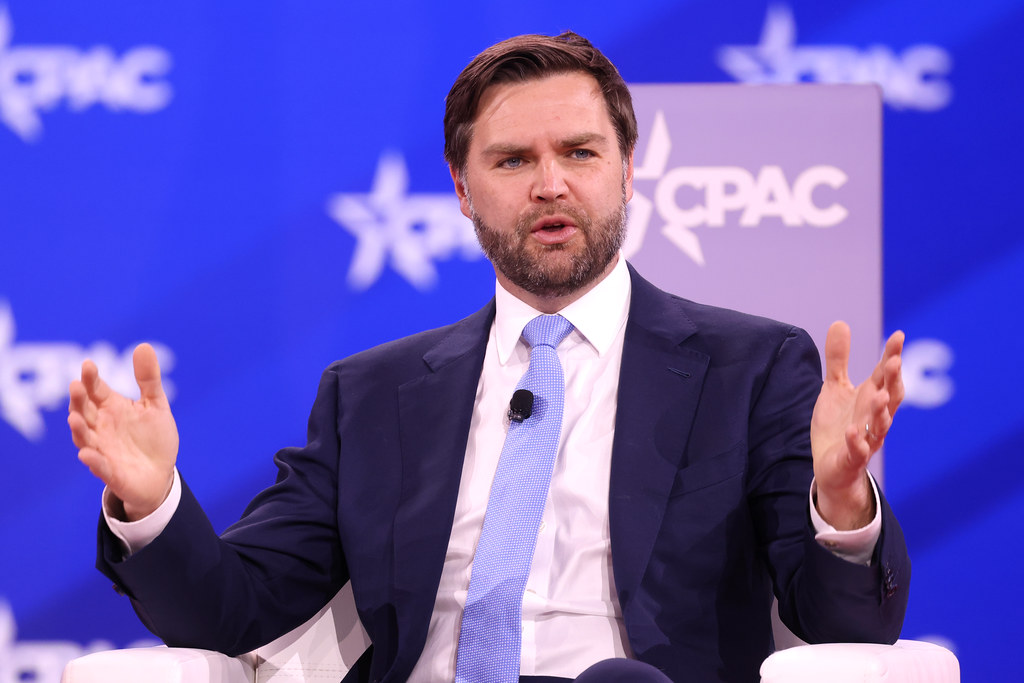
On May 7, JD Vance, a newly elected U.S. Senator from Ohio, addressed the Munich Leaders Meeting. This year, the event was co-hosted by the Munich Security Conference and held at Washington, DC’s Willard Hotel. In his introduction, Vance began by holding forth on the underreported ruble vs. the dollar boilerplate. He reiterated the pressing need for direct negotiations to establish a sustainable peace. He noted that the Trump administration had extended past an initial 30-day ceasefire, which Ukraine had agreed to. Moscow, however, rejected this proposal, arguing that it was incompatible with its strategic priorities.
Vance repeated the administration’s call for direct talks between Russia and Ukraine. He argues that it is the next essential step towards a peace agreement in the conflict. Alongside advocates in both countries, he emphasized that a broader bilateral dialogue is crucial to provide the terms of any eventual peace.
Vance Highlights Russian President’s Refusal as an Impediment to Progress
“The impediment to progress is the president of Russia right now not agreeing to the 30-day ceasefire,” Vance stated, highlighting Russian President Vladimir Putin’s refusal as a significant barrier to peace talks. He noted that Ukraine has already agreed to create a demilitarized zone inside its own borders. This move would make an important contribution to any future ceasefire deal.
Vance remarked, “We would like both the Russians and the Ukrainians to actually agree on some basic guidelines for sitting down and talking to one another.” He underscored the point that Kyiv has made its intention clear to freeze the hostility along the existing lines of contact. This shift is included in a further proposed ceasefire agreement.
Even with these enormous challenges, Vance managed to project a modest sense of optimism that resolution to the conflict might be closer than expected. He stated, “I am not yet a pessimist on the chances of the conflict ending,” reflecting a belief that diplomatic efforts could yield progress.
Trump’s Support for Vance’s Humanitarian Efforts
President Donald Trump was very kind to Vance. He praised him as a “genuine humanitarian” for wanting to end hostilities. Joining the meeting remotely, Trump stressed the need to make quick decisions when it comes to supporting the conflict. “We are getting to a point where some decisions are going to have to be made. I’m not happy about it,” Trump said.
The senator made clear that debates over security posture and other major matters must be re-negotiated in a collective fashion with Europe. He emphasized the need for European countries to increase their own defense spending to meet regional security needs.
In April, Vance expressed his concerns, saying that “The Russians are demanding far more” in the outlined negotiations. He thinks some of their demands might counteract positive steps and make a peaceful resolution less possible. In doing so, he made the positive economic case — that a long-lasting peace would mean prosperity for Ukrainians and Russians, as well.
The senator better addressed the past uproar over his comments from the Munich Security Conference. He had a great sense of humor about his previous statements and clearly committed himself to facilitating a positive discussion. “I appreciate the kind words, and I appreciate the invitation back. I wasn’t sure after February whether I’d get the invitation back,” he quipped.
Wolfgang Ischinger, the convener of the Munich Security Conference, pointed out this week that Vance’s comments a day or two beforehand sparked a furious battle. This remarkable discussion focused on core values and was historic for the platform.
In this context, transatlantic relations might seem purely functional and expedient. In his remarks, Vance took a wider view. “I think that European civilization and American civilization, European culture and American culture, are very much linked, and they’re always going to be linked,” he asserted. He dismissed notions that a significant rift could develop between the United States and Europe, stating, “It’s completely ridiculous to think that you’re ever going to be able to drive a firm wedge between the United States and Europe.”
Policy dialogues on the war in Ukraine are actively taking place. Vance’s comments at the Munich Leaders Meeting are a good reminder of just how desperately we need dialogue, goodwill, and constructive involvement from all parties. The complexities of international relations and regional security will require ongoing attention and proactive engagement to ensure a stable future for both Ukraine and Russia.
Author’s Opinion
JD Vance’s call for direct talks between Russia and Ukraine highlights the urgency of diplomacy in resolving the ongoing conflict. His recognition of the complexities involved, especially the refusal of both sides to fully agree on terms, underscores the difficulty in finding a sustainable peace. However, his optimism about a potential resolution and the need for collective efforts with Europe reflect the importance of continued dialogue and cooperation, which are essential to achieve a peaceful and lasting settlement.
Featured image credit: Gage Skidmore via Flickr
For more stories like it, click the +Follow button at the top of this page to follow us.
